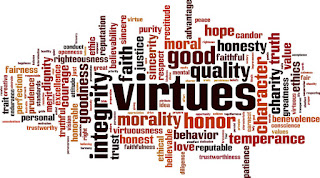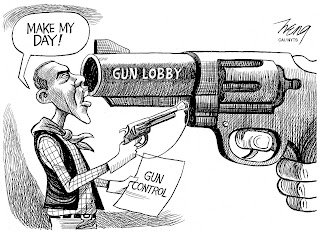A634.2.4.RB - Theories of Ethics
A Tale of Two Theories, LaFollette (2007) discusses Consequentialism and Deontology. Discuss your thoughts on these two theories. Do you tend to lean toward being a consequentialist? Deontologist?
To be honest I wished that I had
received this very topic of discussion before I met my wife because we have had
to learn the hard way about the very evaluation criteria/process that folks
utilize when confronted with a multitude of situations. Really I only
understood what is known in the text as being consequentialism, which just so
happens to deal with consequence based decision making. For me it's all about
weighing out the outcomes and if the decision is centric based or collectively
what good for the mass when dealing organizationally. If you desire an outcome
where you get the biggest bang for your buck of the many then your
consequentialism based ideals fall in-line with utilitarianism. On the flip
side, if your criteria bends towards pleasure based or the absence of pain then
you'd be considered Hedonist. Not saying that either of these are bad, mainly I
just think there's a time and place/situation where the outcome would best
benefit from either. Consequentialism to me is simply being able to bend the
rules so they apply to a specific situation. Black and white decisions made in
a colorful world to me just seems very apathetic which lacks both creative and
critical thinking. The main problem with colorful decision making is that it's
rather hard to justify because of the rule bending/braking aspect, especially
if being judged by a deontologist.
These types of folks like to stick
to the moral compass as best as possible. If there is a rule, then simply just don't
break it regardless of the consequence. To me this seems a bit moronic
especially if there's a clear need for a rule to be broken. Deontologist argue
that if the rule is flawed then don't place the judgment call on the
individual, simply change or modify the rules so everyone can clearly abide.
The deontologist will also argue that consequentialists lack the basic
construct for evaluation because the very nature of the unknown. Can you truly
know the actual outcome before it's made? Most argue through experience and
deduction that of course you can. Throw a non-swimmer in the pool and big
surprise, they in-fact did drown, duhhh right? Some instances are simple but
the ones that are more ethically binding become harder to justify. For me it's
pretty simple, we live in color so apply a type of criteria that best suits a given
situation.
A simple example of how different
societies think takes me back to when I was first dating my wife who is from
Europe. I say "Europe" because she has lived in quite a few different
countries there. The main point is that if you have actually lived, not just
traveled to Europe, you'd know that these folks are definitely deontologists.
The first time this smacked me in the face was when were chasing after a cab in
the freezing temperatures and came to a crosswalk that was displaying the
little red man. Without hesitation, I looked left and right on the fly, and
proceeded across only to almost be tackled by the group of Europeans I was
with. They were shouting at me like I had almost died. With my confused face
was like, "people, it's 1 am, no cars on the road, and clearly no traffic
here, let's go!" No, no, no, no, that's breaking the law and we don't do
that. I was completely flabbergasted, and was like, you have to be (insert expletive)
kidding me right? Are you guys really that stupid? (insert first pre-marital
fight) Being the nonconformist that I am said, byeeee! and across I went. Turns
out that I actually survived the law breaking encounter, big surprise right? Over
the next few years a slew of these trivial situations appeared, and again my
European friends couldn't fathom my disregarding behavior, like god forbid
passing a slow vehicle via the right lane. I swear they thought of me like the
devil sometimes... Or yeah one other, let's wait like a moron at a non-motion
intersection that has no other vehicles in sight and make a right turn. I think
the first time this happened and many after, these folks seemed to brace for
impact like I was pulling out in-front of a train. The more these situations
presented themselves the more I deliberately did them out of pure amusement!
LaFollette, H. (2006). The practice of ethics.
Texas
McCombs. (n.d.). Ethics defined [Video file]. Retrieved from https://erau.instructure.com/courses/126395/assignments/2369712?module_item_id=7283149




Comments
Post a Comment